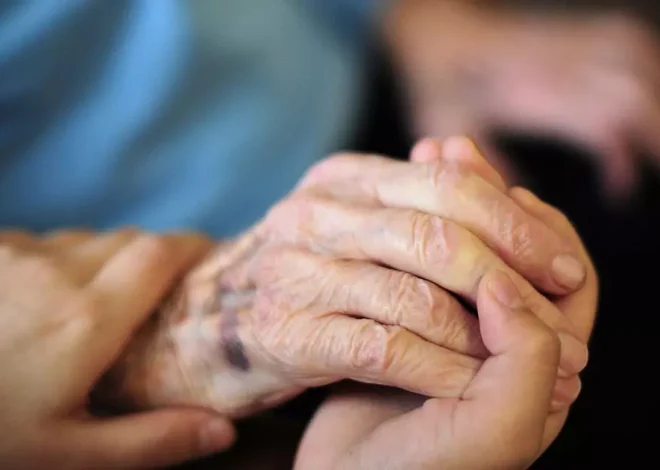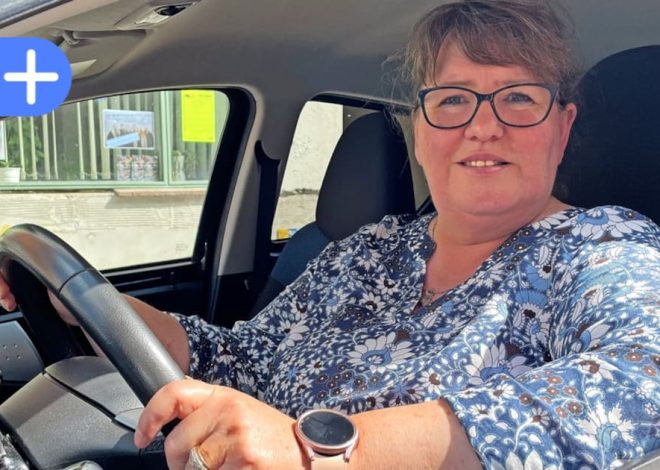
Nursing professionals: “Anyone who does not manage to differentiate themselves can perish from this work”
Dhe fear usually overcame Tamara Grosu (name changed) before she started work. “I couldn’t concentrate at all and ran around the apartment in a state of excitement,” says the Moldovan. The reason for the unrest was the work she was doing as a carer for an elderly man in need of care in an apartment in Frankfurt am Main. Because there they would have expected shifts without breaks, locked in his apartment.
“The person in need of care always locked the door and took the key,” reports Grosu. The agency based in Frankfurt, which appointed the woman as a carer, contradicts this representation and states that the person in need of care took breaks and unlocked the door at any time if necessary.
The shortage of nursing staff is one of the most pressing problems in the healthcare system. According to a survey by the Evangelical Association for Geriatric Care (DEVAP), four out of five care facilities had to limit their offerings last year due to a lack of staff.
All institutions in this area are affected: hospitals, nursing homes, mobile care services. In order not to shut down operations further, many facilities are recruiting nurses from other EU countries and third countries. The hope rests on them that the German care system will not collapse despite demographic change.
However, the attempts to advertise nursing facilities in Germany to foreign workers do not always seem to reflect real working conditions. According to the German Patient Protection Foundation, the language barrier is often a problem, especially when dealing with older people. In addition, the recruited skilled workers often suffer from “drastically limited skills in the profession compared to their home country”.
Recruited workers apparently encounter serious problems in the area of so-called mobile home care. This involves looking after those in need of care in their own homes.
Mobile carers from Eastern European countries
Women from Eastern European countries are usually used for this purpose. Very few of them have any nursing training. Even professional associations only know approximately how many of these mobile carers work in Germany. Estimates range from 300,000 to 600,000 of these workers.
These jobs are usually arranged by agencies that are usually based in Eastern Europe. Many of them advertise in other EU countries with the prospect of good earnings and regular working hours. On site in Germany, however, the situation for female employees often looks completely different.
Tamara Grosu’s trip to Germany also began with great hope. She became aware of the Frankfurt nursing agency through acquaintances. A job in Germany was always her big dream. Her father had already raved about German correctness.
The agency offered the trained nurse a job in an older man’s apartment in Frankfurt. The shifts ran from 10 a.m. to 9 p.m. and the following day from 9 p.m. to 10 a.m. Then there was a break of 48 hours. The contract provided for breaks of 15 minutes during shifts and a longer break on the night shift. Grosu signed and moved to Germany.
In the home of the person in need of care, their ideas and the agency’s promises met reality. Grosu noticed that the man being cared for seemed to be losing touch with reality, as she explains. He said that the neighbor would climb into his apartment through an alleged hole in the ceiling to steal from him.
It wasn’t long before he also suspected Grosu of wanting to steal from him. It was also because of this pathological mistrust that he apparently locked the door and only opened it again when the nurses on duty had finished their shift. The Frankfurt agency confirms that the patient locked the door and carried the key with him due to his “medical condition”, but opened the door at any time when asked.
“Highly problematic” area of home care
Grosu washed the older man, cooked for him, and wiped his urine from the tiles in the bathroom. She got along with the work. What she couldn’t cope with was the lack of breaks. Because the door was locked and, according to her, the person in need of care threatened not to let her into the apartment if she left before the end of her shift, she was essentially trapped in the apartment without breaks, she says.
But even there, Grosu couldn’t find a place to rest for a few minutes. The problem worsened during the night shifts. According to Grosu, the person in need of care insisted that all the doors in the apartment were open and that the lights remained largely switched on.
Because of this and also because of the fear that the person in need of care might fall out of bed and it would be her fault, she is usually unable to get any sleep. The agency disputes this information and states that the breaks could and were taken “every day without any problems”.
Justyna Oblacewicz knows numerous cases like that of Tamara Grosu. Oblacewicz coordinates the care sector for the Fair Mobility advice center of the service union Ver.di. She considers the area of home care to be “highly problematic”.
“It is not uncommon for carers to work seven days a week from early in the morning to late in the evening. The working hours and breaks specified in the contracts are usually not adhered to,” says Oblacewicz. The agencies would often manage the women as freelancers or self-employed people and shift all responsibility to them.
This often leads to the carers being overwhelmed, for example when they – often without any nursing training – are suddenly confronted with patients with advanced dementia or aggressive behavior. “If you don’t have strong nerves and don’t manage to set yourself apart, you can perish because of this work,” says Oblacewicz.
The area of care is also checked by the customs financial control for undeclared employment (FKS). In 2023, he carried out around 1,200 employer audits in the care industry and initiated around 1,800 criminal proceedings and around 880 administrative offense proceedings. Customs statistics do not allow for an individual evaluation of home care.
Adverse conditions
Despite all odds, Tamara Grosu continued to work in the Frankfurt apartment. She repeatedly told the agency that she insisted on her scheduled breaks. But they only told her that she would have to work this out with the person in need of care and their family. However, he is said to have threatened not to let her into the apartment if she left it for breaks.
Meanwhile, the agency continued to deduct the wages from her pay for the breaks she said she didn’t take. The agency denies this and states that “all working hours” were paid.
Another carer working in the apartment also reported, independently of Grosu, about the lack of breaks and the locked apartment door. Both women saw themselves trapped during their time there.
Both of them found it increasingly difficult to endure the conditions of the job. They still didn’t want to quit. What were they supposed to do without work in the country they had moved to for the job and whose language they barely understood?
After years of work, Grosu’s work as a nurse finally ended. Today she works in a bakery. She says she is happy with her new job. She still feels deceived: “If I had known what to expect in Germany, I would never have come here.”

Ethel Purdy – Medical Blogger & Pharmacist
Bridging the world of wellness and science, Ethel Purdy is a professional voice in healthcare with a passion for sharing knowledge. At 36, she stands at the confluence of medical expertise and the written word, holding a pharmacy degree acquired under the rigorous education systems of Germany and Estonia.
Her pursuit of medicine was fueled by a desire to understand the intricacies of human health and to contribute to the community’s understanding of it. Transitioning seamlessly into the realm of blogging, Ethel has found a platform to demystify complex medical concepts for the everyday reader.
Ethel’s commitment to the world of medicine extends beyond her professional life into a personal commitment to health and wellness. Her hobbies reflect this dedication, often involving research on the latest medical advances, participating in wellness communities, and exploring the vast and varied dimensions of health.
Join Ethel as she distills her pharmaceutical knowledge into accessible wisdom, fostering an environment where science meets lifestyle and everyone is invited to learn. Whether you’re looking for insights into the latest health trends or trustworthy medical advice, Ethel’s blog is your gateway to the nexus of healthcare and daily living.






